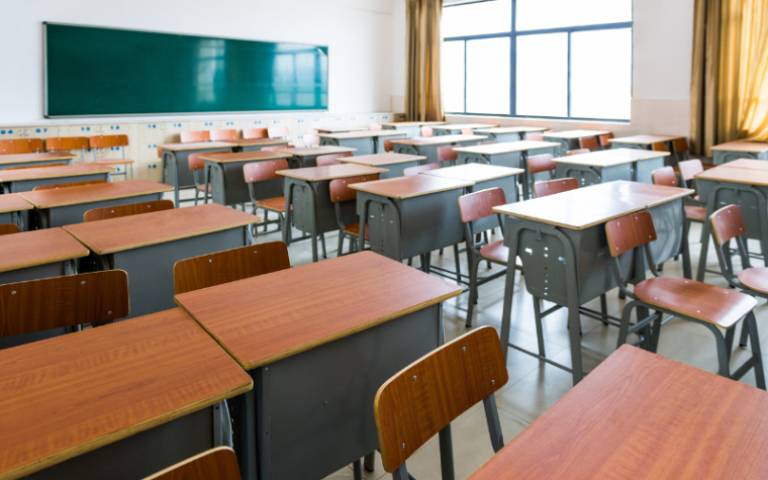Beyond Ofsted inquiry calls for ‘transformational change’ in school inspection
23 November 2023
The school inspection system should be transformed to build trust with parents and teachers and drive improvement across all schools, according to the Beyond Ofsted inquiry carried out by a team of UCL researchers.

The inquiry proposes removing Ofsted from direct contact with schools and reforming it to operate at school group-level governance. It also recommends that the inspectorate’s role should change to be fully independent of government and that safeguarding audits should take place under a new national safeguarding body.
Delivered by a team of UCL academics including Professor Jane Perryman (IOE, UCL’s Faculty of Education and Society), the Beyond Ofsted inquiry is chaired by former Minister for Schools and Learning Lord Jim Knight and sponsored by the National Education Union (NEU). Its advisory board of education experts includes representatives from parent groups, academy trusts, policy groups and academia.
One of the main components of Beyond Ofsted’s recommendations is moving schools to a model of self-evaluation with validation by a School Improvement Partner (SIP). This would typically be someone experienced in school leadership and improvement, including serving headteachers.
A School Performance Review would be set up to enhance the school’s capacity for improvement and to provide information to stakeholders. It would not, the inquiry suggests, be used by the Department for Education (DfE) or by Ofsted to hold schools accountable.
Under this new system, Ofsted’s reformed role would inspect the capacity for school improvement work by the Trust or local authority, and the effectiveness of the school/SIP partnership on a three-to-five-year cycle.
It would still carry out thematic inspections to give feedback to the DfE on the impact of government policies and comment on the capacity for career guidance in schools or how broad and balanced school curriculums are.
Building up trust with parents and teachers is another key area of the inquiry’s findings, and SIPs would establish this by working closely with school leaders and teachers to build a real understanding of the work of the school. Parents would receive more readable information on areas of a school’s performance and practice in the form of a narrative rather than a single-word judgement, and safeguarding checks would be carried out separately by a new national body.
Lord Jim Knight commented: “The evidence is clear. Ofsted has lost the trust of the teaching profession, and increasingly of parents. There is now an opportunity for transformational change. Our recommendations are designed to restore trust and address the intensification of leader and teacher workload while reforming a system that is ineffective in its role in school improvement.
“There is good evidence that a long-term relationship with an external partner of improvement builds trust and drives improvement. It allows that person to get to know the school’s unique context and advise accordingly.
“This approach is at the heart of our recommendations in this report. We should increase accountability to parents with the opportunity of real-time transparent reporting of school outcomes, including regular surveying of parents and pupils. The leadership of the school should be supported by an external partner who has regular engagement with the school around the inputs of the curriculum and pedagogy. This would produce an action plan for governance and the school community to understand what is working well and what can be done better.”
Beyond Ofsted has recommended an immediate pause to routine inspections to allow time to regain the trust of the profession. Parents and governing bodies would, however, retain the right to call for a school-level inspection if concerns are raised.
Lead researcher Professor Jane Perryman said: “Our research revealed a strong perception that Ofsted inspection is not fit for purpose, with parents, governors, teachers and headteachers unhappy with the process and one-word judgments. We suggest shifting accountability, taking inspectors out of the classroom to focus on school or trust governance and capacity for improvement. We also call for an immediate pause in routine inspections to help address the intensification of leader and teacher workload and allow the watchdog to regain trust."
Links
- Beyond Ofsted - An Inquiry into the Future of School Inspection
- Professor Jane Perryman's academic profile
- IOE, UCL’s Faculty of Education and Society
Image
Credit: hxdbzxy via iStock Image
Media Contact
Tom Cramp
- E: t.cramp [at] ucl.ac.uk
 Close
Close

